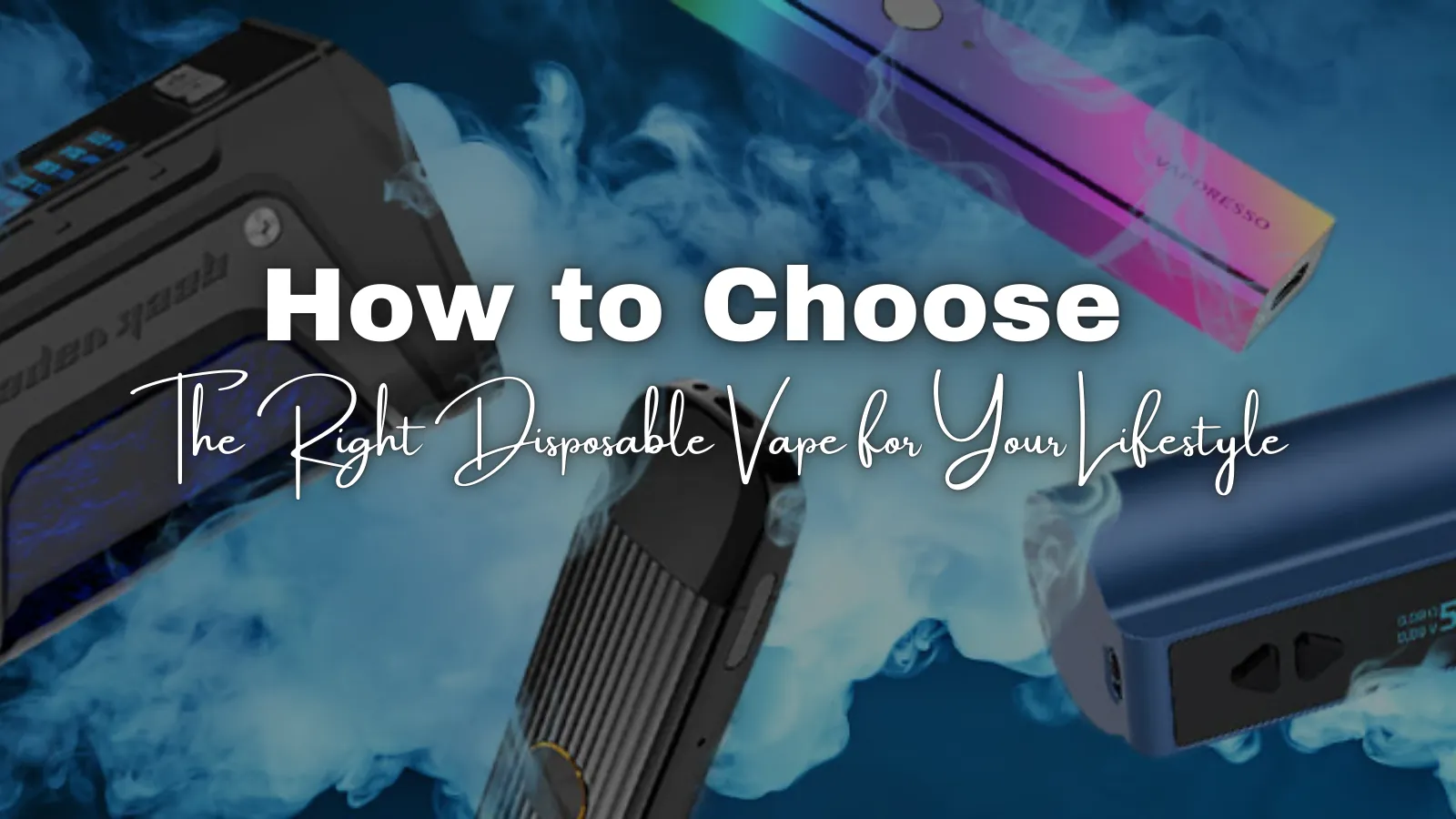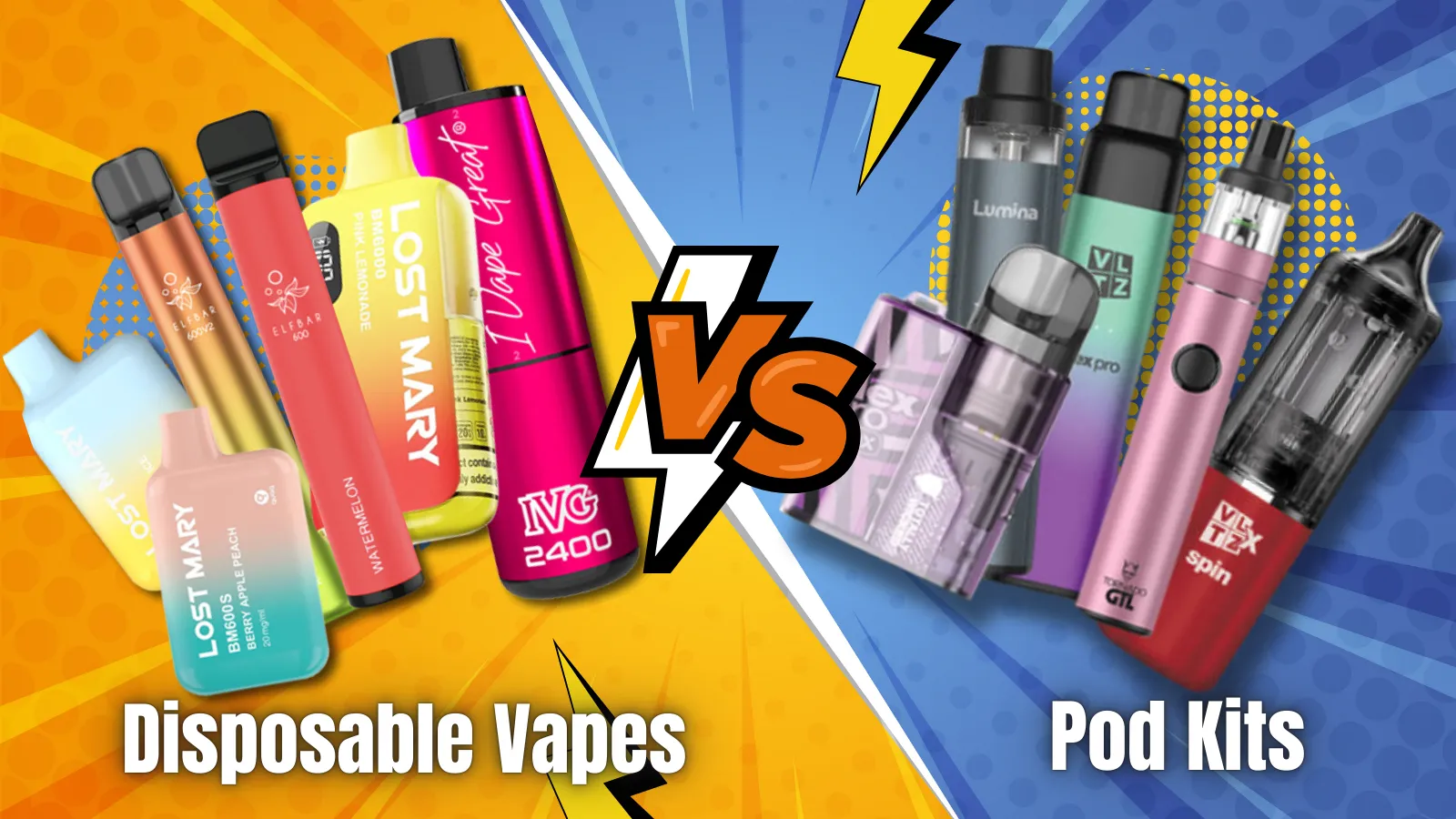Understanding the Different Types of Vape Coils and Their Impact on Flavor
October 21, 2024
Essentially, vape coils form an indispensable part of your vape-things that have a great bearing on flavor and the amount of vapor you get. This guide will break down various types of vape coils, how each one will have an impact on flavor, and how you can find the best coil for your style.
Understanding the Different Types of Vape Coils and Their Impact on Flavor
Introduction: Why Vape Coils Matter
Vape coils are the heartbeat of any vaping device. They determine how well your device will perform, the amount of vapor it produces, and above all, the flavor you experience with each puff. Whether you're a beginner or an advanced vaper, understanding the different types of vape coils can greatly enhance your overall vaping experience.
Technological advancements and emerging trends in coil design will significantly shape vape sessions by 2025. This guide walks you through the available types of coils, their impact on flavor and vapor production, and their overall impact on vaping.

1. How Vape Coils Work
Before diving into the different types of coils, it's important to understand how they work. Vape coils consist of resistance wire, which converts power from the battery into heat. This heat evaporates the e-liquid, producing the vapor that is inhaled.
Critical factors affecting performance:- Resistance: Measured in ohms, resistance directly affects the amount of heat produced, influencing both flavor and vapor density.
- Material: Coils come in materials such as Kanthal, stainless steel, nickel, and titanium, each with its own characteristics.
- Surface Area: A larger surface area allows for faster vaporization, leading to denser clouds and better flavor.
2. Types of Vape Coils
2.1 Kanthal Coils
Kanthal is one of the most common materials in the vaping industry due to its heat stability and resistance to oxidation. It's a reliable option for regular vaping sessions.
Advantages:- Long-lasting
- Can tolerate higher wattages
- Flavor may not be as strong as other materials
Impact on Flavor:
Kanthal coils provide clean flavor but tend to lack the richness found in other coil materials. They're ideal for vapers looking for longevity rather than enhanced flavor.
2.2 Stainless Steel (SS) Coils
Stainless steel coils are versatile and can be used in both wattage and temperature control modes, making them a popular choice for many vapers.
Pros:- Works in both temperature control and wattage mode
- Faster ramp-up time
- May wear out faster at higher wattages
Flavor Impact:
Stainless steel coils offer a clean and consistent flavor profile, particularly when vaped at lower temperatures. These are great for users who switch between modes frequently.
2.3 Nickel (Ni200) Coils
Nickel coils are exclusively used for temperature control vaping due to their low resistance levels, which allows them to heat up quickly.
Advantages:- High heating rate
- Excellent for temperature control
- Not suitable for wattage mode
- Can be dangerous if overheated
Flavor Impact:
Nickel coils produce warm, silky vapor that enhances the sweetness in dessert flavors. Ideal for flavor chasers who prefer low-wattage, lower-temperature vaping.
2.4 Titanium Coils
Titanium coils are another option for temperature control vaping but require careful usage due to safety concerns when overheated.
Advantages:- Smooth and consistent vapor production
- Precise temperature control
- More expensive than other coil materials
- Can emit toxic fumes if overheated
Effect on Flavor:
Titanium coils deliver intense flavor with steady temperature control, making them perfect for vapers seeking consistent performance without heat fluctuations.
2.5 Mesh Coils: The Future of Vaping
Mesh coils are on the rise, and by 2025, they are expected to dominate the market. Unlike traditional wire coils, mesh coils use a flat metal mesh that provides a larger surface area for e-liquid vaporization.

Pros:
- Better flavor production
- Long-lasting
- Faster ramp-up time
- Consumes more e-liquid
- Higher price point
Flavor Impact:
Mesh coils provide unparalleled flavor. Their larger surface area ensures even heating, resulting in richer, fuller flavor with every puff. For flavor chasers, mesh coils are unbeatable.
"Mesh coils are the game-changer in vaping. The intense flavor and vapor have transformed how people enjoy vaping." — Sarah H., Vaping Industry Expert.
3. Sub-ohm Coils VS MTL Coils: How Do They Affect Flavor?
3.1 Sub-ohm Coils
Sub-ohm coils have a resistance below 1 ohm and are known for producing massive clouds and intense flavor.
Best For:- Direct-to-lung (DTL) vaping
- High-wattage devices
Impact on Flavor:
Sub-ohm coils amplify flavors, making them ideal for e-liquids with rich, bold profiles like desserts, fruits, and menthols.
3.2 Mouth-to-Lung (MTL) Coils
MTL coils have a resistance above 1 ohm and are designed for low-wattage devices, offering a tighter draw that mimics smoking.
Best For:- Nicotine salts
- Low-wattage devices
Effect on Flavor:
MTL coils provide a more subtle flavor experience, making them suitable for tobacco and mild fruit flavors.
4. Coil Life: What Affects Flavor
The lifespan of a coil significantly impacts flavor consistency. Here's how coil life affects your vape:
Coil Life Cycle:- New Coil: Fresh coils deliver robust, full flavors.
- Old Coil: Over time, e-liquid residues build up, causing "coil gunk," and flavor quality diminishes.
How to Extend Coil Life:
- Prime your coil properly before use.
- Use e-liquids with low sweeteners to prevent coil gunk.
- Clean your tank regularly.
5. Latest Coil Technology Trends in 2025
Innovation is driving the future of vape coils. Here's what to expect by 2025:
- Smart Coils: Coils that self-adjust wattage and temperature based on the e-liquid and vaping style.
- Self-cleaning Coils: Future coils will feature self-cleaning technology for longevity and consistency without frequent cleaning.
- Organic Cotton and Ceramic Coils: These are gaining popularity due to better flavor retention and durability.
6. Choosing the Right Coil for Your Vaping Style
Selecting the right coil is essential for enhancing your vaping experience. Consider your vaping preferences:
- Flavor Chasers: Choose mesh or temperature control coils (stainless steel, nickel).
- Cloud Chasers: Opt for sub-ohm coils, with Kanthal or mesh coils offering the best vapor production.
- Nicotine Salts: MTL coils with high resistance work






0 replies For Understanding the Different Types of Vape Coils and Their Impact on Flavor